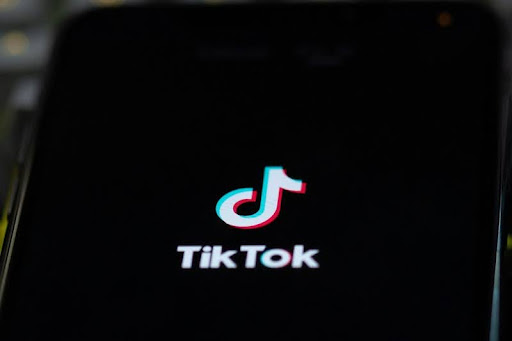
Smart from above—solar panels shine a light on the future of energy-efficient living.
The global landscape is becoming more advanced, and our residences are following suit. From managing your lighting with a simple voice command to modifying your thermostat from far away, technology is revolutionizing our daily lives, and it’s also transforming the real estate market. Whether you’re planning to sell your property or simply intrigued about enhancing its appeal, integrating smart home features can significantly elevate its market value.
But in what ways do smart technological improvements enhance the worth of your home? Let’s explore the specifics and see how these modifications can simplify your life as well as help you secure a higher price when you decide to sell.
Grasping the Smart Home Phenomenon
To begin, let’s clarify what we mean by “smart home.” A smart home incorporates technology to automate and manage various systems, considering everything from lighting and locks to security cameras and thermostats, all handled remotely, typically through an app or voice command.
This trend isn’t merely a fleeting occurrence. Smart homes are becoming more prevalent, and the reasons are clear. They provide convenience, security, and energy efficiency, all qualities that buyers appreciate. Thus, if you’re selling a home equipped with these advancements, you’re likely to differentiate yourself in a competitive market.
Moreover, it’s not solely about installing gadgets for the sake of it. Today’s buyers are seeking residences that offer both comfort and cost savings, traits that smart home technology excels in delivering. Therefore, whether you’re contemplating selling or merely wish to tech up your home, it’s worth exploring these enhancements.
Essential Tech Enhancements That Boost Value
There isn’t a universal method for creating smart homes. You don’t need every device imaginable to witness an increase in your home’s value. In reality, certain upgrades are more influential than others. Here are several key technological features that can significantly impact your property’s worth:
Home Automation Systems
Home automation is where the real enchantment occurs. You can manage everything from lighting to climate control with just a tap on your mobile device or a voice command. Picture waking up to lights turning on and coffee brewing, all without any effort on your part. That’s the advantage of home automation, which is precisely the type of enhancement that gives your home a contemporary and efficient feel.
An effectively integrated home automation setup brings both convenience and energy savings, two features that attract buyers. When potential buyers enter a home and immediately recognize how simple it would be to manage everything from their mobile devices, they are more inclined to appreciate the property’s worth.
Smart Appliances
Next are smart appliances. Although they may not be the first items that come to mind regarding tech improvements, they can significantly influence a home’s appeal. Items like smart refrigerators, ovens, dishwashers, and washers/dryers can enhance a home’s contemporary and advanced atmosphere.
Why is this important for your property’s value? Firstly, these appliances tend to be more energy-efficient. This results in lower utility expenses for the new homeowner, particularly desirable in today’s environment of escalating energy prices. Furthermore, who wouldn’t appreciate receiving a notification when the laundry finishes or if the fridge door is left ajar?
Smart Thermostats
In terms of energy efficiency, one of the most favored and most budget-friendly smart home enhancements is a smart thermostat. These devices adapt to your heating and cooling preferences over time, ensuring your home remains comfortable without unnecessary energy expenditure when you’re away.
For buyers, that’s a clear advantage. They enjoy the ease of a home that maintains the perfect temperature, plus they’re aware of potential savings in the future. Research indicates that homes equipped with smart thermostats frequently command higher sales prices due to the promise of reduced utility costs.
Security and Surveillance Systems
Safety is a primary concern for homeowners, and smart security systems are a significant attraction for buyers. Be it smart locks, surveillance cameras, or motion sensors, these systems offer reassurance, and they leave a strong impression on prospective buyers.
Most of these systems can be managed and observed remotely, allowing you to monitor your home from anywhere globally. For a buyer, this level of security can feel like a crucial selling point. As more individuals are focused on safety, investing in a smart security system could be one of the wisest decisions you make.
Connectivity and High-Speed Internet
Lastly, let’s address something a bit more subtle: connectivity. Today’s buyers anticipate high-speed internet and dependable Wi-Fi. As residences evolve to be more intelligent, the need for robust, uninterrupted connectivity increases. A home that has the necessary infrastructure to support various technological enhancements (such as a strong Wi-Fi connection and smart devices) can significantly boost its appeal.
Furthermore, with remote work becoming increasingly prevalent, many buyers seek assurance that they can remain connected regardless of their location within the home. If your residence is equipped with technology that facilitates this lifestyle, it will attract buyers’ attention.
How Smart Home Features Increase Buyer Interest
So, why is this significant? It’s not solely about incorporating trendy gadgets into your living space, it’s about enhancing your property’s attractiveness to potential buyers. Smart home features fulfill that role effectively.
Convenience and Simplicity in Daily Life
Let’s be real: Life can get hectic, and anything that simplifies it is highly desirable. Today’s buyers are in search of homes that streamline everyday activities. From using voice commands to manage your lighting to modifying your thermostat while on the move, smart homes offer convenience, which is something buyers are eager to invest in.
Cost Efficiency
Who wouldn’t want to save some cash? Smart home technologies like energy-efficient appliances and programmable thermostats can help homeowners lower their energy usage, resulting in reduced utility expenses. This potential for savings can be a significant motivator for many buyers. Additionally, as energy prices continue to rise, the need for efficient operation becomes increasingly critical.
Contemporary, Adaptive Living
Let’s be honest: Smart homes have a certain allure. They embody modernity, advanced technology, and adaptability. When a buyer steps into a home filled with the latest technology and automation, it suggests that the property is current and prepared for the future. It reflects durability, which is an appealing factor for prospective buyers.
Enhanced Safety
Safety remains a primary concern for most homeowners, and smart security features provide ease of use in monitoring and safeguarding a property. Whether it’s viewing the front entrance via a camera or locking doors using a smartphone application, smart security systems empower buyers to feel more secure and in control.
The Financial Advantages of Smart Homes
While the attractiveness of smart homes is evident, let’s explore the financial aspect. How do these technological enhancements influence your financial outcomes?
Return on Investment (ROI)
Upgrading to smart home features can yield a substantial return when it comes time to sell. Research indicates that residences equipped with smart technology frequently command higher prices than comparable properties without such features. Purchasers are often inclined to pay extra for homes that provide convenience, energy efficiency, and security, all of which smart home technology offers.
Effect on Property Valuations
Upgrades involving smart technology can also influence property valuations. Appraisers typically consider the added worth of elements like smart thermostats or security systems when assessing a home’s value. Therefore, not only will you attract more potential buyers, but your home could also receive a higher appraisal, potentially leading to a more favorable sale price.
Appealing to Target Buyers
Particular demographics, notably younger homebuyers, are ready to invest more in homes that feature the technology they desire. These buyers generally seek properties that resonate with their contemporary, technology-oriented lifestyles. By enhancing your home with the newest gadgets, you not only boost its worth but also make sure it appeals to the right audience.
Market Developments and Buyer Preferences
As technology advances, the real estate landscape is also evolving. Today’s buyers are increasingly tech-savvy, with shifting preferences. They are in search of homes that are not only aesthetically pleasing but also practical and efficient. Additionally, they are progressively on the lookout for smart features that simplify their lives and enhance security.
For sellers, this suggests that incorporating smart home upgrades is no longer a choice; it has become an expectation. As the demand for smart homes escalates, it is crucial to keep your property updated with the latest technology.
Factors to Consider Before Implementing Smart Features
Before you embark on installing every smart device available, take a moment to evaluate your investment. Not all tech upgrades will yield the same returns, and some may not appeal universally to buyers. It’s vital to balance the costs of upgrades with the potential gains, especially if you plan to sell shortly.
Furthermore, while many buyers are excited about the concept of a fully integrated home, others might find the abundance of technology daunting. It’s essential to achieve a balance and ensure that the enhancements you make are in line with the expectations of buyers in your region.
The Future of Smart Homes in the Housing Market
Looking forward, smart homes will become increasingly common in the real estate sector. With emerging technologies on the horizon and a growing emphasis on sustainability and energy efficiency, properties featuring smart technology will maintain heightened demand. Whether it’s innovative AI-driven technologies or more environmentally friendly, energy-efficient solutions, the outlook for smart homes is promising.
Conclusion
In the real estate arena, smart homes are rapidly becoming the standard rather than the exception. If you plan to sell your home, implementing a few technological enhancements could significantly impact your results. These features not only increase your home’s attractiveness to potential buyers but can also elevate your property’s value and help it stand out in a crowded market.
Therefore, if you’re thinking about selling or simply aiming to enhance your living environment, transitioning to a smart home might be one of the wisest choices you can make. With a modest investment and a vision for the future, you could position your home for success, both in the present and in the years ahead.






